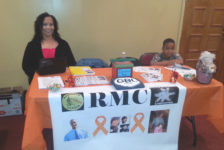I have spent the morning reading cancer immunotherapy grant proposals. (I am a consumer reviewer giving a patient’s prospective on which proposals are most worthy of funding). While most of the technical details are way beyond my grasp, I did learn one thing that is perhaps not very surprising but important for us to remember. Although cancer immunotherapy is, as one of my favorite doctors told me, the future of cancer treatment, we are just at the beginning of understanding how and why it works (and equally important, why it doesn’t work for many patients).
For those of us with Stage IV kidney cancer, immunotherapy has long been one of our options and the focus of a lot effort and hope. Many of us have been treated with IL-2. Despite providing a cure for a few patients, IL-2 remains a dangerous and difficult treatment that doesn’t shrink the tumors for the majority of patients (although it may have subtle benefits). IL-2 is both an example of the great promise of immunotherapy and a painful reminder of how far we have to go before immunotherapy fulfills that promise.
Today, immunotherapy is exploding, both in terms of research and in terms of the number of patients and the wide variety of cancers it is being used to treat.
My own experience shows how pervasive immunotherapy is becoming in the treatment of cancer. I have participated in three immunotherapy clinical trials in the last 9 years. I have received six immunotherapy drugs: three experimental, two FDA-approved and one off-label (meaning FDA-approved but not for my cancer). For the last 6 years, the only systemic treatments I have received have been immunotherapies, and I am currently getting infusions of an immunotherapy drug every 2 weeks.
Even the local therapies I have had during this period —a Stereotactic Body Radiation Therapy (or SBRT) treatment and a cyroablation—are considered immune system stimulants and are sometimes combined with immunotherapies. My cyroablation was coordinated with my infusion schedule in the hope that the cancer cell debris from the frozen tumor would work with the immunotherapy drug to guide my immune system to attack cancer cells.
Immunotherapy is already a big deal in cancer treatment. However, there is still an enormous amount of research still needed to transform this type of treatment from the occasional miracle for some patients with a few types of cancer to an effective therapy for the average patient with a wide variety of cancers. This is especially true for solid tumors (the majority of cancers) where the cancer is able to create an environment within the tumor that makes it difficult for the immune system to attack cancer cells.
We can, perhaps, already glimpse the future of effective treatment for many cancers using our own immune systems, but we will not reach that point without lots of research. Please help us work to fund that research through KCCure.









